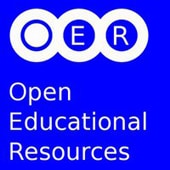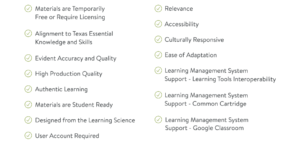Has the OER Tipping Point Arrived?
 Free and Open Educational Resources (OERs) are taking off. In the last two weeks, we’ve seen some major developments from some of the most influential players in education, Pearson and Blackboard. The market is shifting to open. Yet, has the tipping point arrived?
Free and Open Educational Resources (OERs) are taking off. In the last two weeks, we’ve seen some major developments from some of the most influential players in education, Pearson and Blackboard. The market is shifting to open. Yet, has the tipping point arrived?
Pearson launched OpenClass, which is a new, free, cloud-based Learning Management System (LMS) for higher education that integrates Google Apps. The new LMS incorporates a social network feel while it makes it easy for students and instructors to access email, calendars and coursework.
However according to Google, it’s not the first of its kind in the Google Apps Marketplace. Others like it include CourseDirector LMS, Engrade Gradebook & LMS, and Haiku LMS. While Pearson has dipped its toe in the waters of OER, Blackboard has taken a bigger leap.
Blackboard partnered with Creative Commons (CC) to support publishing, sharing, consuming OERs on its new CourseSites. Instructors can now publish courses with a Creative Commons Attribution license and share it with more than 18,000 instructors from nearly 12,000 institutions in 113 countries – with a push of a button.
“It’s an opportunity for the world’s educators to share their openly licensed educational resources,” says Cable Green, Director of Global Learning at Creative Commons. Instructors can share content in two clicks, creating a searchable URI with a CC license and two downloadable formats, says Green.
While innovative, some observers strongly believe that there’s more to the story. OER advocates say, these market shifts will lead to a transition form product push to market pull.
“It isn’t specifically what Blackboard is doing, but that it stemmed from customer demand. The tipping point in OER will be when learners and instructors demand the ability to share and open what they are doing and drive the market themselves,” says Victor Vuchic, Program Office of Open Educational Resources at The William and Flora Hewlett Foundation.
The market paradigm shift among instructors and shareholders caused a tipping point at Blackboard, changing the course of its LMS design.
“The fact that there was enough demand for this to influence the product design of the biggest market share holder is no small feat,” says Vuchic. “We’ll know we are getting there when our stakeholders shift from asking, ‘Why should we be open?’ to ‘Why aren’t we open?’ That’s exactly the shift we experienced with Blackboard,” says Vuchic.
Other big wins in OER include Google’s recent investments in OER infrastructure and integration of CC licensing on YouTube, says Vuchic.
Yet, Green is an evangelist for the dramatic shift of all markets to open. He says, venders need to consider the competitive disadvantage to not being open.
Last week, Open Education hosted the Open Education Conference 2011 in Utah. View the hilarious slides about open policy by Dr. Cable Green. You can also view the video of Green’s keynote on YouTube.





Don Brown, D.Ed.
It absolutely has! It's a golden opportunity for large districts and networks of small/rural districts to jump into blended and fully-online-course based learning. The best example is the Open High School of Utah, but many more are "waiting in the wings". Schools can finally create and own their own quality virtual assets.
Our collaborative of 14 Oregon districts is taking the plunge, hosting Moodle for what we can build and deploy locally, and purchasing as need be from a variety of quality online course vendors. We gain more expertise and higher completion rates every year, and are creating a global network of expertise.
DT
Great article and thanks for the mention of CourseDirector LMS. Like many others in the Google Apps Marketplace we didn't like the two misleading statements put out by Pearson originally that: (1) It was a Google joint venture and (2) It was the first of it's kind, but the end result has been positive in that it has generated more interest in the Marketplace generally and we have seen an increase in sign-ups.
Interesting about the developments at Blackboard.
Replies
Tom Vander Ark
As learning platform ecosystems emerge we'll see a lot more collaboration between open and proprietary which is great from a functionality/scalability/sustainability perspective but will result in these uneasy relationships, hyped claims, and a few religious skirmishes.